Chemistry and Biochemistry
- Degree Type Bachelor of ArtsBachelor of Science
- Department Chemistry and Biochemistry
- Academic Division The College
- Offerings Major
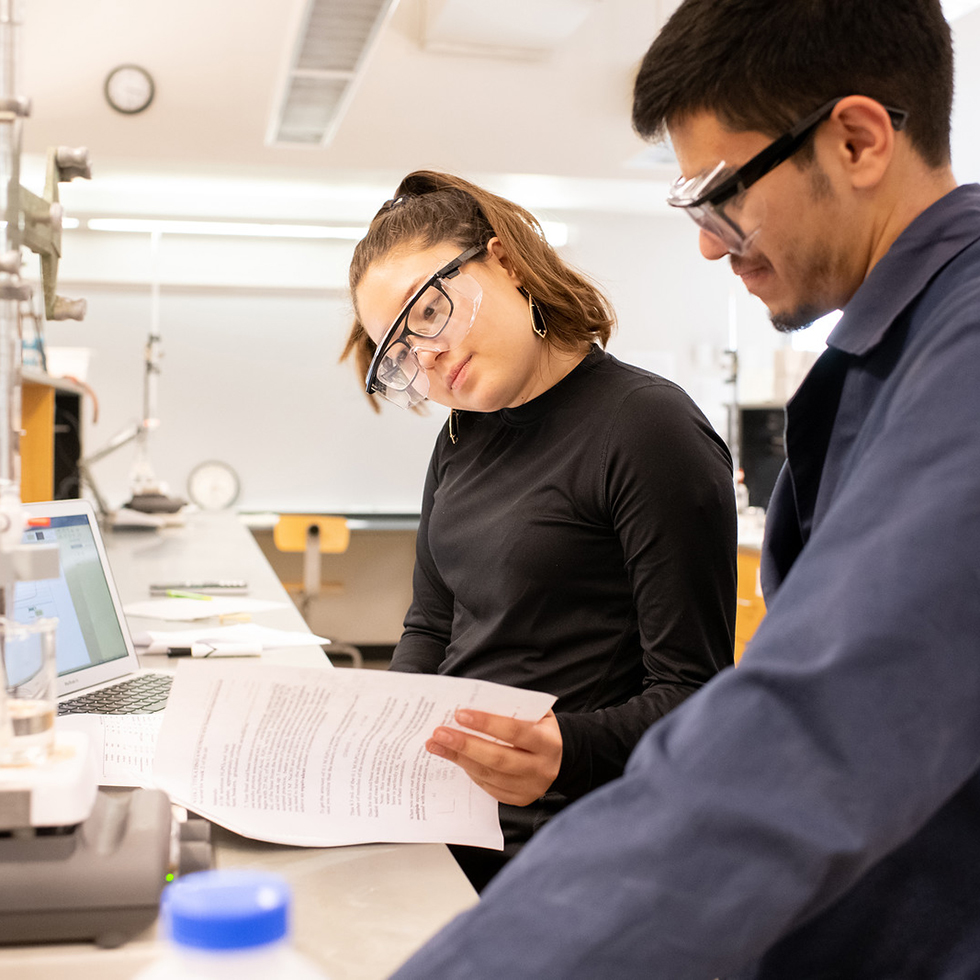

Chemistry and Biochemistry students develop an understanding of chemistry and are encouraged to continue the pursuit of a deeper or broader understanding of the disciplines. Faculty are committed to preparing lifelong learners who are equipped with skills derived in W&L’s classrooms and laboratories.
Chemistry and Biochemistry
Chemistry and biochemistry majors understand essential chemical principles and have a foundation of factual chemical knowledge on which they may build in the future.
One of the greatest benefits of studying chemistry at W&L is the hands-on training students receive when using the state-of-the-art equipment for lab and research. Students can participate in summer research projects alongside faculty, as well as directed individual study during the academic year. These partnerships often lead to co-authoring papers in scientific journals and presenting at professional conferences.
“The wide variety of classes that I have taken over two years has taught me to be open-minded and to analyze problems from various perspectives.”
Anukriti Shrestha
Class of 2019
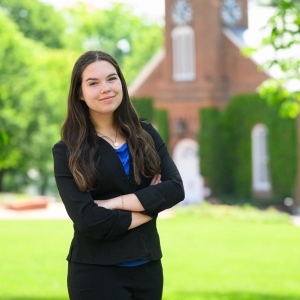
In The Lead: Linking Community and Career
From a public health Volunteer Venture trip to alumni mentorship, the W&L network opened doors and supported dreams for Liv Ullmann ’25.
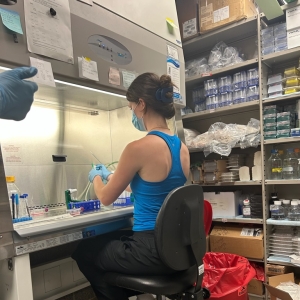
W&L’s DART Internship Program Places Students in Cutting-Edge Research Labs
At prestigious labs around the country, W&L students have pushed themselves and the frontiers of science to help those with a rare disease.
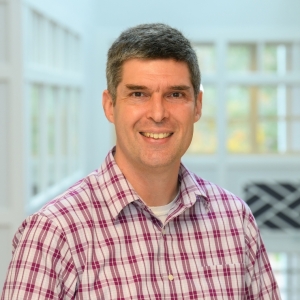
Kyle Friend to Present Nobel Prize Symposium Talk
The associate professor of chemistry and biochemistry will discuss this year’s Nobel Prize winners in physiology or medicine on Feb. 5 in Leyburn Library.

Meet Ryan Doty ’26
Doty’s many creative pursuits range from research in the chemistry lab to taking photos around campus.

Erich Uffelman to Deliver Provost’s Lecture
The annual address that celebrates W&L faculty for excellence in scholarship and teaching will be held at 5:30 p.m. on Sept. 17 in University Chapel.

W&L Outcomes: Luke Avigliano ’25
Avigliano is studying for the MCAT this summer and then will be working as a scribe for a pediatrician.
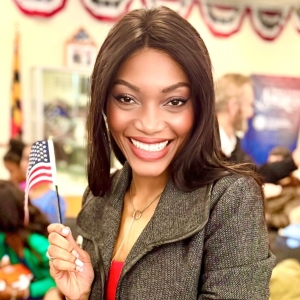
American Dream
Tolu Olubunmi ’02 has made her journey to citizenship an opportunity to inspire and serve others.
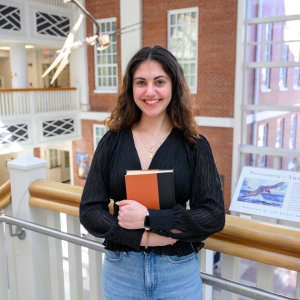
From Mystery to Mastery
A chance encounter in the Science Center as a child set Alyssa Cirrincione ’25 on a path to pursue her curiosity at W&L.

Simple Interventions
For Dr. Kelli Jarrell ’12, a multidisciplinary approach is foundational to her career in social emergency medicine.

Twelve W&L Students Awarded Gilman Scholarships to Study Abroad
The Gilman Scholarship Program offers awards of up to $5,000 to U.S. undergraduate students who are Pell Grant recipients.

Connell Cunningham Jr. Named Scholar in Residence for the Office of Community-Based Learning
The visiting assistant professor of chemistry will serve a one-year term for the 2024-25 academic year.
Sample Courses
At W&L, we believe education and experience go hand-in-hand. You’ll be encouraged to dive in, explore and discover connections that will broaden your perspective.
- General Chemistry
- Analytical Chemistry
- Genetic Engineering & Society
- Disorder & Chaos
- Science in Art
CHEM 110
General Chemistry
A foundational course for those pursuing upper-level chemistry and biochemistry. Fundamental vocabulary, concepts and principles that appear throughout the chemistry and biochemistry curriculum are introduced, including basic chemistry calculations, quantum mechanics in chemistry, molecular structure, chemical thermodynamics and chemical kinetics.
CHEM 211
Analytical Chemistry
Emphasis on inorganic systems exhibiting aqueous solution equilibria. Topics covered include acid/base reactions, redox reactions, complexation, precipitation reactions and solution equilibrium. Laboratory work emphasizes basic wet-chemical as well as more sophisticated instrumental techniques of chemical quantitative analysis with appropriate statistical methods of data handling.
BIOL 150
Genetic Engineering & Society
In this course, we explore the nuts and bolts of genetic engineering and a small sampling of its applications, including developing drugs and vaccinations, enhancing crops, testing for genetic diseases, and genetic testing in the courtroom. These applications introduce ethical considerations for us to debate. In addition, we use molecular-biology tools to carry out our own genetic engineering projects with spider silk genes, which have potential for multiple medical and industrial applications.
CHEM 106
Disorder & Chaos
An interdisciplinary introduction to the concepts underlying nonlinear dynamics and fractal geometry emphasizing the theories of chaos and complexity. Students study mathematical and computer modeling of physical and social systems and interpret the results of these models using graphical methods and written descriptions.
CHEM 156
Science in Art
This course develops students’ fundamental understanding of certain physical, chemical, biological and geological concepts and utilizes that vocabulary and knowledge to discuss 17th-century Dutch art. The emphasis is on key aspects of optics, light and chemical bonding needed to understand how a painting “works” and how art conservators analyze paintings in terms of conservation and authenticity, using techniques such as X-ray radiography, X-ray powder diffraction, scanning electron microscopy, Raman microscopy, infrared spectroscopy, infrared microscopy, infrared reflectography, gas chromatography, liquid chromatography, mass spectrometry, UV-vis spectroscopy, UV photography and laser ablation methods.
Meet the Faculty
At W&L, students enjoy small classes and close relationships with professors who educate and nurture.


Matt Tuchler
Head of the Chemistry and Biochemistry Department; Associate Professor of Chemistry
- P: 540-458-8029
- E: tuchlerm@wlu.edu
Tuchler teaches many upper-level physical chemistry courses. His research group developed a technique to measure the equilibrium constant as a function of temperature for any gas phase equilibrium of the form.


Andrea Abry
Instructor of Chemistry/Supervisor of Labs
- P: 540-458-8163
- E: abrya@wlu.edu
Abry teaches General Chemistry, Disorder and Chaos, and Aqueous Inorganic Quantitative Chemistry.


Lisa Alty
John T. Herwick, M.D. Professor of Chemistry
- P: 540-458-8927
- E: altyl@wlu.edu
Alty teaches courses in upper-level chemistry, primarily organic. Her research focuses on laboratory instruction in chemistry.


Connell Cunningham
Visiting Assistant Professor of Chemistry


Steve Desjardins
Professor of Chemistry
Desjardins teaches courses in general and physical chemistry. His research interests include statistical mechanics, nonlinear dynamics, and chemical kinetics.


Kyle Friend
Associate Professor of Chemistry and Biochemistry
- P: 540-458-8616
- E: friendk@wlu.edu
Kyle Friend teaches courses on genetic engineering and biochemistry at all levels. His research uses mouse embryonic stem cells to investigate how mRNA translation and stability are regulated as stem cells differentiate into other cell types.


Erin Gray
Assistant Professor of Chemistry
- P: 540-458-4867
- E: egray@wlu.edu
Erin Gray teaches organic chemistry, and her research seeks to employ synthetic organic chemistry to answer unsolved questions in biology. She designs new catalytic transformations for the synthesis of complex molecules, with the goal of using these reactions to label and study biomolecules.




Fred LaRiviere
Associate Dean of the College; Associate Professor of Chemistry and Biochemistry
LaRiviere’s courses include Teaching Inquiry in the Local Schools, Mechanisms of Cancer and Advanced Biochemistry. Each summer, he also supervises a number of research students.




Donna Smith
Instructor of Chemistry
- P: 540-458-8343
- E: smithdm@wlu.edu
Smith teaches Organic Chemistry and Spectroscopic Methods.


Erich Uffelman
Bentley Professor of Chemistry
Uffelman teaches courses in upper-level inorganic chemistry. He also teaches courses that overlap with the Art and Art History Department, such as Science in Art. Uffelman regularly supervises summer research students.












